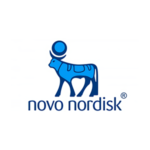 Novo Nordisk (NYSE:NVO) president Jakob Riis said this week that the company will limit annual price hikes of its products’ list prices to single-digit percentages, joining Allergan (NYSE:AGN) CEO Brent Saunders who released a “social contract” 3 months ago with the same goal.
Novo Nordisk (NYSE:NVO) president Jakob Riis said this week that the company will limit annual price hikes of its products’ list prices to single-digit percentages, joining Allergan (NYSE:AGN) CEO Brent Saunders who released a “social contract” 3 months ago with the same goal.
“We hear from more and more people living with diabetes about the challenges they face affording healthcare, including the medicines we make. We take this issue seriously and have been thinking about what we can do to better support patients,” Riis wrote in a statement. “This has become a responsibility that needs to be shared among all those involved in healthcare and we’re going to do our part.”
Saunders has been vocal about the need for the pharmaceutical industry to self-regulate. In a blog posted to the company’s site last week, he wrote that other company’s should join the effort to promise patients access to affordable medicines. “The biopharmaceutical industry does have a social contract with patients. Now is the time to make good on that contract by taking self-regulating action,” Saunders wrote. “Take your own stand and implement your form of a social contract. Limit your price increases before we all face the impact of government regulation that stifles innovation and patient care.”
The company pledges come at a time when drug pricing is at the forefront of public discussion regarding healthcare. The industry’s pricing problems were highlighted last year when Turing Pharmaceuticals raised the price of its malaria drug Daraprim from $13.50 to $750 a pill. This year, Mylan (NSDQ:MYL) has been the poster-child for industry greed for many politicians, after reports showed that the company raised the price of its EpiPen device 500% since it acquired the product in 2007.
Company executives, including Mylan CEO Heather Bresch, have maintained that the overall pricing system isn’t structured for consumer engagement and encourages price hikes. In his statement, Riis said that Novo has raised list prices to keep up with changes to the health care system and inflation. But, he argued that the price hikes have not kept up with rising rebates and discounts that drugmakers pay to pharmacy benefit managers to better placement on preferred coverage lists.
“As the rebates, discounts and price concessions got steeper, we were losing considerable revenue – revenue we use for R&D, sales and marketing, education, disease awareness activities and medical information support. So, we would continue to increase the list in an attempt to offset the increased rebates, discounts and price concessions to maintain a profitable and sustainable business,” he wrote.
Riis also said that high deductible health plans “are becoming a greater part of the affordability issue,” since consumers take on more out-of-pocket costs.
“As a leader in diabetes care, we recognize patients need more. We are poised to do more, but can’t do it alone,” Riis wrote. “We need a partnership approach involving PBMs, insurance companies, employers, patient organizations and policy makers – to help find sustainable solutions.”

